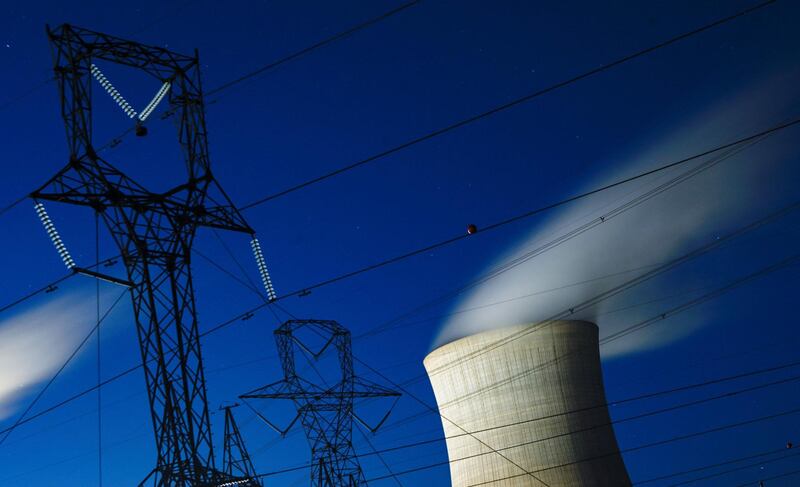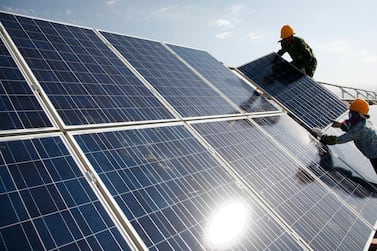Falling costs of renewable energy generation could drive down the cost of hydrogen production, particularly in the Middle East, the International Renewable Energy Agency said in a report on Tuesday.
Record low tariffs for solar power projects among oil-exporting states of the Middle East could allow for the development of low-cost green hydrogen, which refers to the clean fuel produced entirely from renewables.
"The potential levelised cost of hydrogen, assuming the low solar photovoltaic and onshore wind prices from the recent auctions in Saudi Arabia, could be as little as $1.62 per kilogramme of hydrogen (kgH2)," the Abu Dhabi-headquartered agency said.
"This compares favourably with the hypothetical cost of natural gas steam methane reforming, with today’s carbon capture, utilisation and storage (CCUS) costs at between $1.45/kgH2 and $2.40/kgH2," the report added.
Hydrogen produced from steam methane reformation, which uses captured carbon dioxide as a source, is known as blue hydrogen. The variant of the gas produced through electrolysis of water using renewable energy as a source is known as green hydrogen. Both can later be stored and exported in the form of ammonia.
The UAE is building a massive blue ammonia facility at the country's downstream hub in Ruwais. Abu Dhabi National Oil Company is advancing plans to develop the 1,000 kilotonne per year facility within the Ta'ziz industrial complex.
On Tuesday, Fertiglobe, a joint venture between Adnoc and Dutch firm OCI said it will join the development of the blue ammonia plant.
Irena noted that falling costs of solar with record-low bids such as $0.0157 per kilowatt-hour in Qatar, $0.0135/kWh in the UAE and $0.0104/kWh in Saudi Arabia over the last 18 months are accelerating the deployment of green energy – and eventually green hydrogen.
Globally, renewable energy costs were lower than fossil fuels in 2020, according to the agency's Renewable Power Generation Costs in 2020 report.
Costs for concentrated solar power fell by 16 per cent last year, while wind fell by 13 per cent. Offshore wind and solar PV also saw costs decline 9 per cent and 7 per cent, respectively.
The declining costs for renewables are also likely to challenge coal's predominance as a cheap source of fuel, particularly in developing economies.
“Today, renewables are the cheapest source of power,” said Francesco La Camera, Irena's director general.
"Following the latest commitment by G7 to net-zero and stop global coal funding abroad, it is now for G20 and emerging economies to match these measures. We cannot allow having a dual track for energy transition where some countries rapidly turn green and others remain trapped in the fossil-based system of the past," he added.








